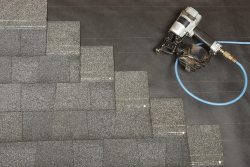How Often Should You Replace Your Roof?

Importance of Roof Replacement
Roof replacement is essential for maintaining the integrity and safety of your home. As your roof ages, it becomes more prone to leaks, cracks, and other damage, which can compromise its ability to keep out water, withstand wind, and provide adequate insulation. A deteriorating roof can lead to a range of problems, including water damage, mold growth, energy inefficiency, and even structural damage. Regular roof replacement helps prevent these issues, ensuring that your home remains secure, comfortable, and energy-efficient.
Factors Affecting Roof Lifespan
Several factors can influence the lifespan of your roof, therefore determining how often replacement is necessary. The first factor is the type of roofing material. Different materials have varying lifespans, with some lasting longer than others. For example, asphalt shingles typically last around 20 to 30 years, while metal roofs can last 40 to 70 years. Other materials, such as wood shake or slate, can last even longer with proper maintenance. Understanding the expected lifespan of your roofing material is crucial in determining when replacement is needed.
Another factor is climate. Extreme weather conditions, such as high winds, hail, heavy rain, and snow, can accelerate the deterioration of a roof. If you live in an area prone to severe weather, it is important to inspect your roof more frequently and potentially replace it sooner than the average lifespan to ensure optimal protection.
Maintenance practices also play a role in the lifespan of your roof. Regular inspections, maintenance, and repairs can extend the life of your roof and help identify potential issues before they escalate. Neglecting maintenance can cause problems to go unnoticed, resulting in costly repairs or premature replacement.
Roof Replacement Frequency
The frequency of roof replacement varies depending on the factors mentioned above. As a general guideline, a traditional asphalt shingle roof should be replaced approximately every 20 to 30 years. However, this can vary based on the quality of the shingles, the climate, maintenance, and any damage sustained over time.
Metal roofs, on the other hand, tend to have a longer lifespan and may only require replacement every 40 to 70 years. Other materials, such as wood shake or slate, can last even longer if properly maintained.
It is important to note that these are average lifespans and individual circumstances can impact the need for replacement. If you notice any signs of damage, such as missing or cracked shingles, water leaks, or visible wear and tear, it is crucial to have your roof inspected by a professional. They will be able to assess the condition of your roof and recommend if replacement is necessary or if repairs can prolong its life.
Certain external factors may also warrant early replacement. For example, if a severe storm causes significant damage to your roof, it may need immediate replacement, regardless of its age. Additionally, if you are selling your home, an older roof may need to be replaced to increase its value and attract potential buyers.
Conclusion
Regular roof replacement is an essential part of home maintenance. While the lifespan of your roof depends on various factors, it is generally recommended to replace traditional asphalt shingle roofs every 20 to 30 years. However, individual circumstances, such as climate, maintenance, and material, can influence the need for replacement. Regular inspections and maintenance, along with prompt repairs, can help extend the life of your roof and ensure the ongoing protection of your home. Consulting with a professional roofing contractor will provide you with expert advice on when to replace your roof and what materials will best suit your needs.
